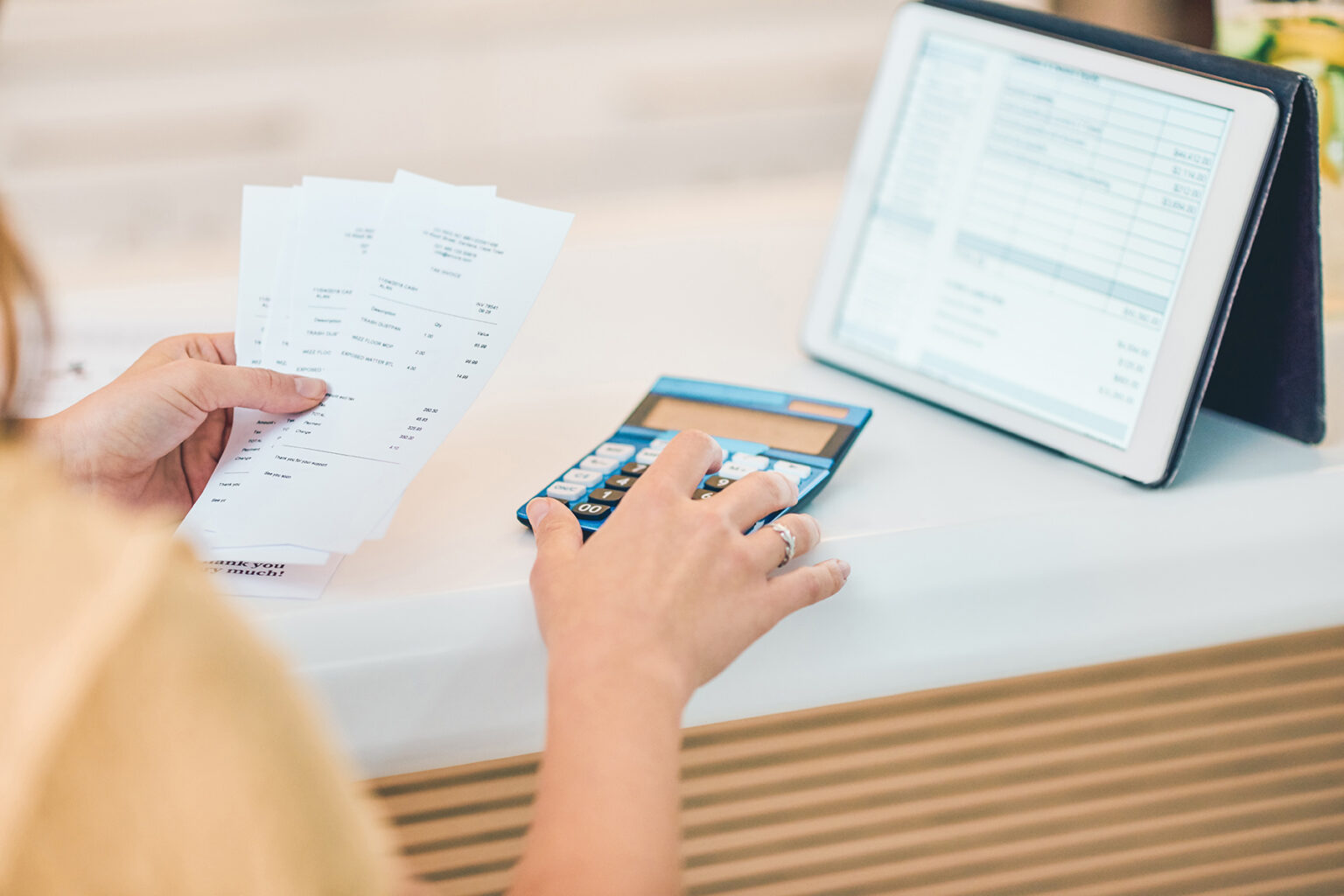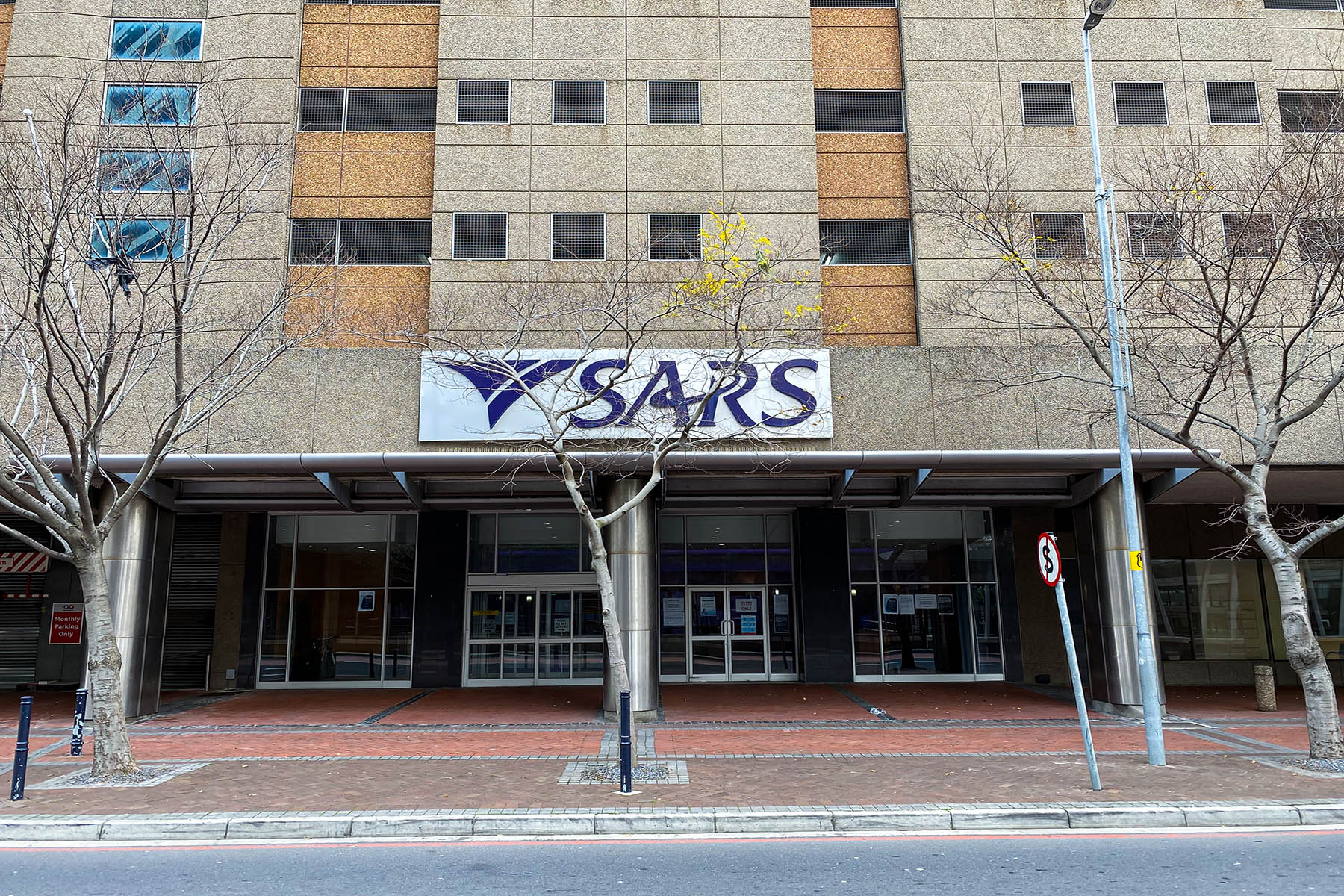If you call the sunny shores of South Africa your new home and earn income – from salaries, investments, rental properties, freelance earnings, or something else – you may need to pay income tax. It all depends on your age and whether your total income is above the tax threshold. However, even if you pay tax on your remuneration, it does not automatically mean you must file an annual tax return.
Explore the following topics to determine your accountability to pay income tax and file a return in 2025:
- Income tax in South Africa: overview and latest developments
- Tax rates: how much tax will I pay in South Africa in 2025?
- Who pays income tax in South Africa?
- How do you file your tax return (ITR12/IRP6) in South Africa?
- Income tax refunds
- What happens if I don’t pay my income tax on time?
- Income tax advice in South Africa
- Useful resources
H&R Block
Filing U.S. taxes from South Africa? H&R Block’s expat tax experts simplify the process with easy online registration and remote filing. Whether it’s answering tricky tax questions or managing paperwork, they’ve got you covered. Stay compliant, stress-free, and up-to-date – contact H&R Block today.
Income tax in South Africa: overview and latest developments
If you get remuneration in South Africa – whether you are an expat, permanent resident, or citizen – you must pay income tax and file your returns once a year.
It will be calculated based on your net earnings after deductions. Rates increase with income and are distributed across brackets or a sliding scale. This simply means that the more you earn, the more tax you pay.

The South African Revenue Service (SARS) regulates the national tax system, including income tax collection, compliance, and legal enforcement. It levies income tax on various sources of earnings, such as:
- Salary/Wages (e.g., employment or self-employment)
- Employment fringe benefits (e.g., bonuses, overtime, lump sums)
- Company directors’ fees
- Rental income
- Royalties
- Pensions (e.g., private retirement annuity plans and state pensions)
- Investments (e.g., dividends, interest, and capital gains)
PAYE and UIF
Employees who earn a salary pay taxes through the Pay-As-You-Earn (PAYE) system. The employer deducts a certain percentage (i.e., according to the relevant tax bracket) from your monthly salary, which you reconcile by filing a return at the end of the tax year. Taxpayers who receive income beyond a monthly salary may also be liable to pay provisional taxes.
Additional payroll deductions include the Unemployment Insurance Fund (UIF) contributions, which are set at 2% of an individual’s salary or wage. Employers must deduct 1% of an employee’s monthly salary plus a 1% company contribution to submit to SARS. The UIF provides short-term relief to workers when they become unemployed or cannot work due to parental, adoption, or caregiving leave, or illness. It also offers financial support to the dependents of a deceased contributor.
SARS adjusts the tax rates annually to allow for inflation, economic conditions, and policy goals.
The government uses the revenue from income and other taxes (e.g., corporate, VAT, property, customs, and excise duties) to fund the social security system and public services such as education, healthcare, and policing.
Latest news about income taxes in South Africa in 2025
In the 2025 Budget, the South African government elected to keep income tax bands unchanged for the 2026 tax year, which started on 1 March 2025.
The most significant change in the Budget involved increasing the country’s VAT rate from 15% to 15.5% from May 2025. It will rise again in April 2026 to 16%.

Tax rates: how much tax will I pay in South Africa in 2025?
Income tax in South Africa is calculated according to your earnings after deductions, and falls in the following brackets:
| Taxable income (annual) | Tax rates |
| Up to R237,100 | 18% of taxable income |
| R237,101–370,500 | R42,678 + 26% of taxable income above R237,100 |
| R370,501–512,800 | R77,362 + 31% of taxable income above R370,500 |
| R512,801–673,000 | R121,475 + 36% of taxable income above R512,800 |
| R673,001–857,900 | R179,147 + 39% of taxable income above R673,000 |
| R857,901–1.817,000 | R251,258 + 41% of taxable income above R857,900 |
| R1.817,001 and above | R644,489 + 45% of taxable income above R1.817,000 |
These brackets have remained unchanged throughout the 2024 (March 2023-February 2024), 2025 (March 2024-February 2025), and 2026 (March 2025-February 2026) tax years.
Calculating your income tax in South Africa
SARS does not have an online tax calculator, but you can use these ones to determine your income tax payments (i.e., PAYE and UIF contributions):
TaxTim seamlessly integrates with the South African Revenue Service, enabling one-click electronic submission of tax returns directly.
Who pays income tax in South Africa?
As of 2025, you must pay income tax in South Africa in the following circumstances:
| Age | Income/Tax threshold |
| Younger than 65 | You earn more than R95,750 |
| 65–74 | You earn more than R148,217 |
| 75 and older | You earn more than R165,689 |
Who needs to file an income tax return in South Africa?
Taxpayers who must file a yearly income tax return include:
- Individuals who have multiple income streams
- Employees who earn more than R500,00 per year
- Workers claiming additional allowable tax-related deductions
- Tax residents claiming tax rebates or refunds
- Self-employed workers
If you are still unsure, you can quickly determine whether you need to file one by answering a few questions on this SARS questionnaire.
Whether you need to pay and file income tax or not, all working residents must register for an income tax number.
If you live and work in South Africa, you must pay income tax to SARS if you earn any remuneration above the exemption threshold. You are a tax resident if you consider the country your main place of residence (i.e., an ordinarily resident) or if you meet the three physical presence test criteria – you resided in South Africa for:
- 91 days in total during the year of assessment
- 91 days in total during each of the five years of assessment preceding the year of assessment
- 915 days in total during those five preceding years of assessment
If you are a permanent resident or citizen, you will be taxed on your worldwide earnings. Conversely, expats who are non-residents will only pay income tax on their South African remuneration.
You are considered a non-resident for tax purposes if:
- You are not an ordinarily resident
- You do not meet the physical presence test criteria
- You’ve been outside of South Africa for at least 300 days continuously
Typically, if you are employed and only earn a single salaried income where your employer deducts monthly PAYE and UIF contributions, you are not obliged to submit an annual income tax return.
South African income tax for foreigners
Foreign residents pay the same income tax as South African citizens and permanent residents. However, taxes for non-resident taxpayers only apply to income from South Africa and not worldwide. SARS has implemented this policy to ensure that individuals moving from one country to another are not taxed twice on income earned in their home country.

Therefore, South Africa has tax treaties with many countries worldwide to eliminate double taxation. SARS categorizes the Double Taxation Agreements (DTAs) and Protocols into two groups:
However, since 1 March 2020, foreign employment income earned by a resident exceeding R1.25 million has been taxed in South Africa according to the tax tables for that year. This applies to residents who spend more than 183 days, including at least 60 consecutive days, outside of South Africa within any 12-month period during the assessment year.
Filing US taxes from South Africa
Every US citizen and Green Card holder must file a tax return with the IRS, even those living abroad. Many US expats are unaware of this obligation, assuming that, as expats, they don’t need to file or pay taxes in the US. The good news is that as long as you’re paying taxes in another country, you usually don’t owe anything to the IRS, but it’s essential to make sure, and the law says you still have to file.
Learn how to file your US tax returns from South Africa by reading our article on taxes for American expats. Alternatively, you can seek advice from a company that offers a specialized tax filing service for expats, such as H&R Block.
Who is exempt from paying South African income tax?
According to the 2025 Budget, the following tax residents do not have to pay income tax:
| Age | Annual Income/Tax Threshold |
| Under 65 | You earn less than R95,750 |
| 65–74 | You earn less than R148,217 |
| 75 and older | You earn less than R165,689 |
Additionally, you don’t need to file a return if all of the following are true:
- Your total employment income for the year, before tax, was less than R500,000
- Your employment income was from only one employer for the entire tax year
- You have no other form of income (e.g., rental income, another job, car allowance), including international earnings
- You aren’t claiming any other tax deductions, like medical or travel expenses
- You do not conduct any trade in South Africa
- As a micro business owner, you did not earn more than the turnover tax threshold
- You do not have foreign currency or assets over R250,000
- You do not have capital gains or losses exceeding R40,000
- You do not hold participation rights in a Controlled Foreign Company
- SARS does not audit you
If you still need more clarification, check the SARS website.
How do you file your tax return (ITR12/IRP6) in South Africa?
How to register for tax in South Africa?
You can register as a taxpayer in three ways:
- Use the SARS eFiling system
- Register via your employer with SARS eFiling
- Sign up in person at a SARS branch

You also need to provide these supporting documents as proof of your identity:
- General Requirement: Bring a copy and the original of your ID, driver’s license, passport, temporary ID, asylum seeker certificate, or permit
- For Minors: Present a copy of your birth certificate and your parent/guardian’s ID. If parents are deceased, provide a death certificate.
- Legal Guardianship: Provide a legal guardianship confirmation letter or a court order
Once your registration is complete, SARS will provide you with a unique tax number, which you need to use in all correspondence and when you file returns.
Income tax return forms
If you must submit an income tax return, you need to use the following forms:
- ITR12: Personal income tax return (regular income from salaries and wages)
- IRP6: Provisional income tax return
In South Africa, a provisional taxpayer is an individual who earns income beyond regular wages, such as from business, rental, or investment, and must estimate and pay their tax in advance during the tax year.
Of course, these forms can be long and complicated, but, in summary, the main items will include:
- Personal and contact details of the taxpayer/person making the declaration
- Tax practitioner details (if an intermediary, like an accountant, submits your form on your behalf)
- Declaration of all your income streams, investments, and pensions (local and international)
- Declaration of your monthly PAYE and UIF deductions (information on the Employee Tax Certificate, IRP5/IT3)
- Declaration of all your deductions, contributions, and medical credits
- Dates of pay periods
- Information on foreign tax credits
- Declaration of capital gains or losses
Fortunately, the SARS website is clear and easy to navigate, and you can access the Comprehensive Guide to the ITR12 Income Tax Return to help you complete the form and pay your taxes.
However, if you can’t find the answers to your income tax return questions, you can also call their contact center at 0800 00 7277 or internationally at +27 11 602 2093. They are open on weekdays from 08:00 to 16:30, except on Wednesdays, when the office opens an hour later.
Key dates and deadlines
The tax year starts on the first day of March and ends on the last day of February the next year:
- 2026: 1 March 2025 to 28 February 2026
- 2025: 1 March 2024 to 28 February 2025
- 2024: 1 March 2023 to 29 February 2024
The deadlines for the 2025 filing season will be published online. In 2024, the dates were as follows:
- Individual taxpayers: 7 July to 24 October 2024
- Provisional taxpayers: 7 July 2024 to 23 January 2025
You can also keep up to date with the most important monthly dates on the SARS website.
Methods of submission
SARS may issue Auto-Assessments via eFiling or the SARS MobiApp to taxpayers whose income tax returns are straightforward.
They calculate your tax assessment based on your data received from employers, medical schemes, banks, retirement annuity funds, and other institutions. Once the assessment is ready to view, you will receive an SMS or email from SARS. If you agree with the assessment, you do not need to take any further action. However, if you disagree, you have until the due date to submit a new return.

Alternatively, if you (or your financial intermediary) file your income tax return, the easiest and most popular way to complete and submit it is to do it digitally. You need to register using the SARS eFiling system and follow the steps. This site also gives more information and guidance on how to file your return.
However, you can also submit your annual income tax return via these channels or platforms:
- MobiApp: Mobile via your smartphone or tablet
- SARS branch: In-person at a physical office across the country, Monday to Friday, 08:00–16:00 (opens at 09:00 on Wednesdays)
- Postal submission: Request an income tax return to be posted, complete it manually, and submit it at a SARS branch
You need an appointment when visiting a branch, and can book a slot via three systems (if you are a registered taxpayer):
- Use the eBooking system
- Call 0800 00 7277, and press 0
- Send an SMS to 47277 (iSARS) with the following information – Booking (Space), ID/Passport/ Asylum Seeker number
When the demand for physical appointments becomes too high, SARS may set up temporary pop-up branches and Mobile Tax Units (MTUs) to assist more people.
Required documentation
You will need all the relevant documents while completing your return, but you will not be submitting this paperwork to SARS. Instead, keep these safe for easy reference in case the tax agents query any of your declarations.
Below are the likely required documents:
- The Employee Tax Certificate or IRP5/IT3(a) which your employer must provide
- Medical certificates and documents required for claims made in addition to those covered by your medical aid
- Pension and retirement annuity certificates
- Banking details
- Travel logbook, if you receive a travel allowance
- Tax certificates that you received in respect of investment income (IT3(b))
- Completed confirmation of diagnosis of disability (ITR-DD – Confirmation of Diagnosis of Disability) – where applicable
- Information relating to capital gain transactions – if applicable
- The approved Voluntary Disclosure Programme (VDP) Agreement between you and SARS for years prior to 17 February 2010 – where applicable
- Financial statements (e.g., business income) – where applicable
- Any other documentation relating to income you received or deductions you want to claim
Deductibles and tax relief
You can receive the following rebates depending on your age and tax threshold (as mentioned before):
| Rebates | 2025 and 2026 tax years |
| Primary (under 65) | R17,235 |
| Secondary (65–74) | R9,444 |
| Tertiary (74 and older) | R3,145 |
You can also get medical tax credits if you pay into a medical aid scheme, such as:
| Who | 2025 and 2026 tax years |
| Primary medical aid member | R364 |
| First dependent | R364 |
| Additional dependents (each) | R246 |
Only a certain percentage of lump sum payouts are taxable. For example, if you withdraw your membership from a pension fund – or receive money because of a divorce settlement – you are looking at the following tax relief:
| Taxable income | Tax payable |
| R1–27,500 | 0% of taxable income |
| R27,501–726,000 | 18% of taxable income above R27,500 |
| R726,001–1.089,000 | R125,730 + 27% of taxable income above R726,000 |
| R1.089,001 and above | R223,740 + 36% of taxable income above R1,089,000 |
However, if you receive a lump sum benefit because of retirement or the death of the policyholder, only these amounts are taxable:
| Taxable income | Tax payable |
| R1–550,000 | 0% of taxable income |
| R550,001–770,000 | 18% of taxable income above R550,000 |
| R726,001–1.089,000 | R125,730 + 27% of taxable income above R726,000 |
| R1.089,001 and above | R223,740 + 36% of taxable income above R1.089,000 |
Furthermore, you can claim exemption on South African-sourced interest income, depending on your age:
- Under 65: R23,800
- 65 and older: R34,500
Other streams of income that are exempt from income tax include:
- Investments up to R36,000 (annually)
- Dividends received from South African companies

There are also many deductibles that you can make against your income, especially if you are self-employed, such as:
- Business travel expenses/allowances
- Subsistence allowance incurred while on business
- Other business-related expenses
- Home office expenses
- Pension fund contributions
- Donations
You can also offset the costs of installing solar panels at your home against your personal income tax liability up to R15,000.
How do I pay my South African income tax?
After filing your income tax return in South Africa, SARS processes it to calculate your tax liability or refund. Your assessment will outline payment details and deadlines if you owe taxes. Typically, you can use the following methods to pay:
| Payment method | Details |
| At these banks: Absa, FNB, Nedbank, Standard Bank, and Capitec | Quote the correct beneficiary ID and payment reference number (PRN) |
| eFiling payments: Absa, Bidvest Bank, Capitec Bank, Citibank, FNB, HSBC, Investec, Nedbank, Standard Bank, Standard Chartered, Mercantile Bank, AlBaraka, Sasfin, and HBZ | Set up a credit push payment option |
| SARS MobiApp: via your Statement of Account (SOA) or Notice of Assessment (ITA34) | SOA: pay an amount determined by you ITA34: pay the full amount due |
| Use correct references to ensure that SARS can identify your payment and allocate it to your account | Use correct reference to ensure that SARS can identify your payment and allocate it to your account |
| At a SARS Customs branch | Cash payments not accepted |
| Foreign payments: only use if none of the above options are possible | Only FNB: use the standard SWIFT 103 message and the Beneficiary ID/Account Number “SARS-FOR-999” |
Income tax refunds
If you’re due a refund, SARS will credit it to your registered bank account, typically within 72 hours after your return has been assessed. However, it can take longer if they are dealing with a high volume of returns. However, you will only receive a refund if:
- The amount due is more than R100
- Your banking details are verified and correct
- You have no outstanding debts or income tax returns
- You are not being audited or investigated
If you are audited, SARS must complete the process within 21 business days and issue a Letter of Completion. If all is in order, you will receive your tax refund within seven business days.
Dispute an assessment outcome
You can appeal the assessment if you believe SARS made a calculation error that caused you to overpay. You must lodge an objection in writing to SARS within 30 business days from the assessment date. Remember to be detailed in your description and provide all supporting documentation to substantiate your claim.
If you have any other complaints about the service you’ve received, you can do so via three methods:
- SARS eFiling
- Visit a SARS branch
- Call the toll-free SARS Complaints Management Office (CMO) number at 0800 12 12 16
What happens if I don’t pay my income tax on time?
Not filing your tax return can result in an administrative penalty. It is a fixed amount based on your taxable income, ranging from R250 to R16,000 for each month that the non-compliance continues, up to 35 months.
If you can’t pay the full amount, you can make a deferred arrangement with SARS.

However, if you dispute the penalty, you can submit a Request for Remission (RFR). If SARS denies this request, you must pay the penalty if you do not proceed with the formal objection process.
If you fail to pay the fines, SARS will appoint a debt collector to obtain the money from you.
Criminal implications
Since 2021, if you do not comply with the tax regulations, even if it is due to negligent mistakes, you can face criminal prosecution if you fail to:
- Register your details with SARS or notify them of any changes
- Appoint a representative taxpayer or notify SARS of such appointments or changes
- Sign up with SARS as a tax practitioner (if you do someone else’s taxes for compensation)
- Failure to submit a return
- Provide all relevant information and substantiating records when requested
- Attend a meeting or a hearing to give evidence
- Comply with a SARS directive or instruction
- Disclose any material information to SARS as required under tax laws
- Pay an amount on another taxpayer’s behalf in settlement of a tax debt
- Withhold or deduct the tax correctly (as an employer) and pay it to SARS
Income tax advice in South Africa
If your tax affairs are straightforward, it is easy enough to self-assess and file your income tax returns without expert advice. This would be true if your only source of income is a salary, your employee withholds PAYE and UIF, and you do not own a home or investments, or want to claim rebates.
However, this is often not the reality for most people in South Africa. For this reason, it is advisable to consult with a tax practitioner, accountant, or financial expert. SARS lists a number of reputable tax advisors on its website.
When you choose a tax practitioner to help you with your income tax return, ensure they are registered with a recognized body, such as:
- Chartered Institute of Management Accountants (CIMA)
- Chartered Governance Institute of Southern Africa (CGISA)
- Financial Planning Institute (FPI)
- Institute of Accounting and Commerce (IAC)
- SA Institute of Chartered Accountants (SAICA)
- SA Institute of Professional Accountants (SAIPA)
- SA Institute of Taxation (SAIT)
- The Association of Chartered Certified Accountants (ACCA)
- Chartered Institute for Business Accountants (CIBA)
- Legal Practice Council
Useful resources
- SARS eFiling – the tax online platform you can use to file your income tax return digitally
- Comprehensive Guide to the ITR12 Income Tax Return – a PDF/external SARS guide
- South African Revenue Services (SARS) – the governmental tax authority in South Africa
- SARS PAYE – official, detailed information on the Pay As You Earn (PAYE) system
- SARS TV – SARS YouTube Channel with explanatory video clips on how to electronically submit your income tax return
- SARS branch – find a physical office across the nine provinces
- Ordinarily resident – official clarification of this legal status
- Physical presence test – official explanation of these requirements
- SARS Types of Tax – determine your home office expenses







